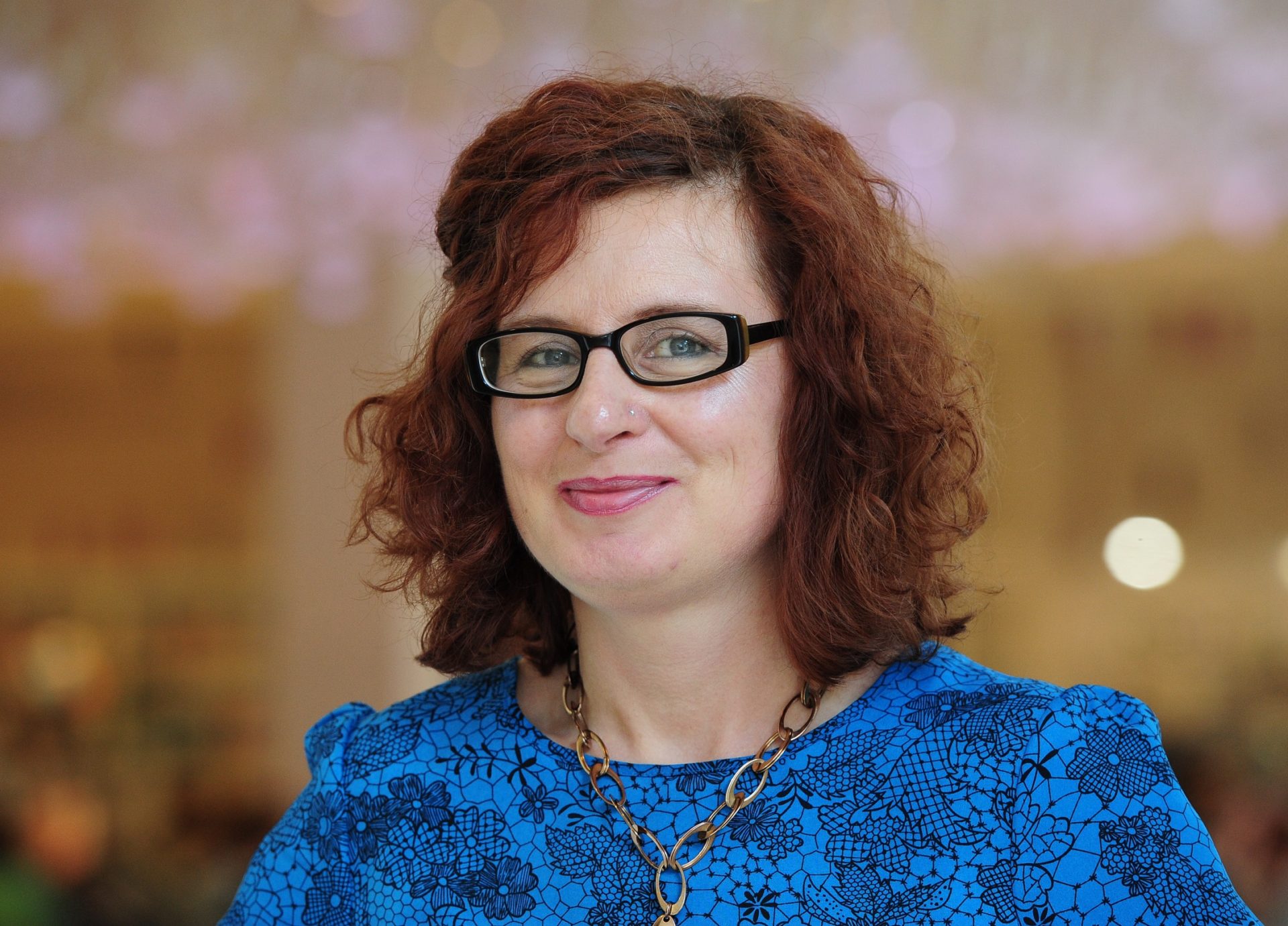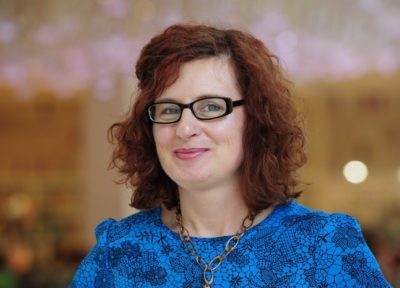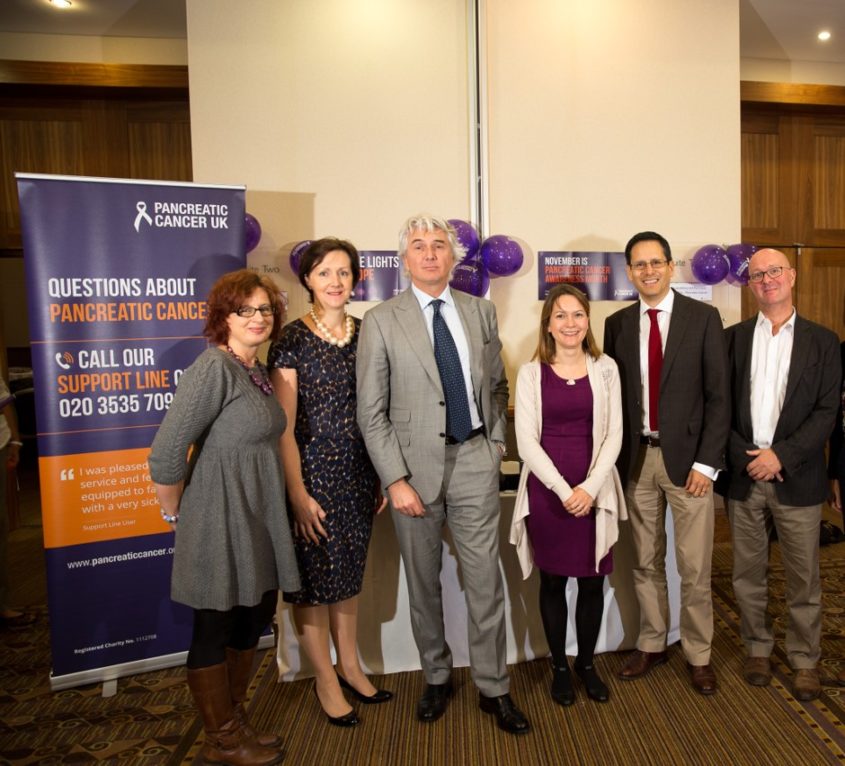



Our Support Line turns 10
Here we interview Jeni, our longest standing member of the Specialist Nurse Team at Pancreatic Cancer UK. She’s witnessed radical changes in the running of the service over the last 10 years. Read on below to find out more.
Can you describe some of the biggest differences between how the Support Line was run back in 2010, compared to how it is run now?
Gosh, it’s hard to describe the difference – a bit like chalk and cheese! The biggest difference is that I was a lone nurse instead of the team of seven we have now. I worked 24 hours per week with the charity and 15 hours for the NHS in my job as a clinical trials nurse.
Anna Jewell, now Director but at the time Head of Services, and I embarked on a trip around the specialist centres in the UK to promote our services. In two years, we managed to visit ALMOST every specialist centre, as well as doing the “job” and attending conferences and expanding our knowledge. I remember trying to learn new things and getting help from surgeons at various specialist centres. We had a passion to see things get better for people with pancreatic cancer – a passion we carry to this day.


On a day to day basis, I used a blackberry mobile to answer calls. The calls came through to the main number at the charity and were emailed to me with a name and number to call. I then returned the call on the mobile. At some point, I seem to recall, we decided that calls could come direct to the mobile. It wasn’t unusual to be at a conference and to head out to take a call! Nowadays nurses are stationed at home with their own phone and computer, ready and waiting to take people’s calls.
Have you witnessed a change in the type of things people have needed support with over the years?
To be honest, I haven’t. It’s only more complicated now, perhaps, as more people use Google to search and interpret information. One really positive change, though, is that many more family members are contacting the charity now too.
What do you think have been the biggest milestones in the development of the Support Line?
The email service – allowing people to contact us over email directly. We’ve greatly expanded our services too so we can signpost people to different types of support – the Living with Pancreatic Cancer online support sessions allow people to meet each other virtually and our Side by Side service is invaluable for people having surgery.
I think the consistently high level of information we produce has also helped to spread the word through healthcare professionals and those who use the service. Also, developing other ways of delivering information such as easy read, and videos has given us different projects to get involved in.
As a team, we are also involved in other things, such as training and presentations which helps to keep our knowledge up to date.
How would you like to see the Support Line progress in the future?
Using technology more to enhance the experience people have with us – such as video calling, instant messaging, live chat etc. I would also love to be able to contact hospitals and other health professionals on behalf of the patient; but there are many complexities and challenges involved in doing this.
What is one thing that hasn’t changed about working on the Support Line over the past 10 years?
That’s easy. I’m sad to say it’s the diagnosis pathway, care and management of pancreatic cancer patients. There have been changes on a minute level, but overall, we are still hearing the very same issues we heard 10 years ago. That makes me sad. But I’m also pleased to say Pancreatic Cancer UK are working on that pathway, ensuring it’s addressed and improvements are made.
What was your most memorable call throughout the last 10 years?
Wow, I cannot think back 10 years! I do recall one young man in the early days who had considerable pain. After speaking to me, he went away with some information for his GP and it was good to hear from him a few days later to say his pain was loads better. He was only 38 – it hit home that someone so young could get pancreatic cancer.
There have been too many poignant calls and emails. All of those we speak to are true heroes – living through a very difficult diagnosis every day. It’s an honour, a privilege and so very humbling to speak to such amazing people every day. I am blessed in this job. It’s difficult – hard emotionally – but I love doing what I do. And to work with an exemplary team of exceptional nurses!
Five Facts
- We achieved the Helplines Standard Accreditation in 2017
- Our specialist nurses won the Nurse Silver Awards in 2019, the first nurses not working for the NHS to do this
- We started the Living with Pancreatic Cancer support days so our nurses could meet and support people in person in 2015. More recently in response to the pandemic, these have moved online.
- 1000 calls and emails were made to the nurses in 2011/12, compared to 2019/20 when this was 4,611.
- The number of nurses working on the Support Line has grown from 1 part time nurse to 7 full time nurses over the last 10 years.

